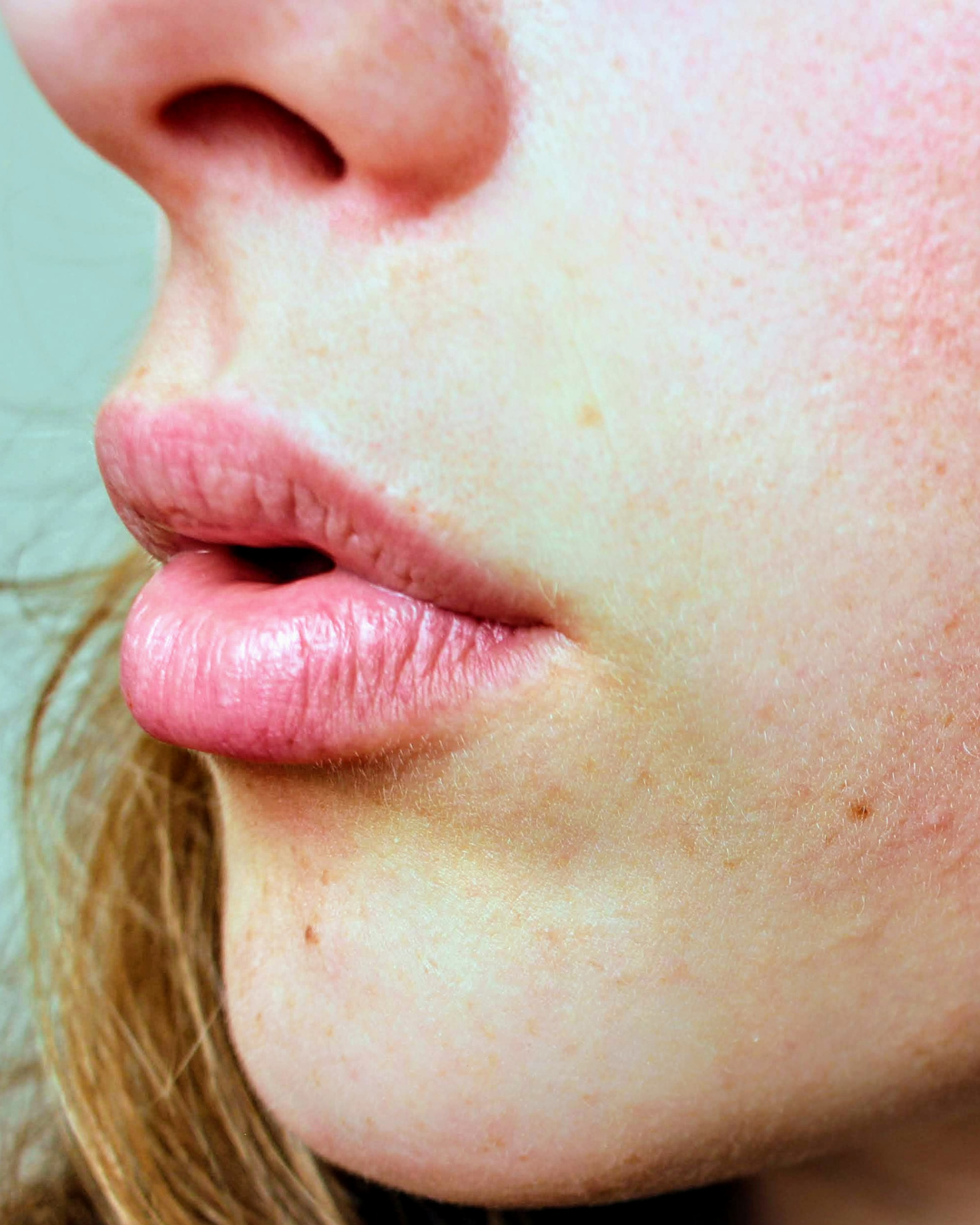Blog
Educate & Motivate
Learnings, teachings and tips & tricks to educate and inform on the topics of skin health and chronic pain.
Rosacea Severity: The Role of Lipids, Gut Function, and Histamine
Rosacea is not simply a facial flushing disorder or a cosmetic concern. It is increasingly recognised as a systemic inflammatory condition influenced by metabolic, gastrointestinal, and immune factors.
Covid causing skin issues?
Five years on and we are still seeing the effects of covid 19, this time through its impact on the gut-skin axis. Emerging evidence suggests that disruption of the gut microbiome caused by the virus may contribute to skin conditions such as rosacea, psoriasis, and eczema.
How Vitamin Deficiencies May Worsen Rosacea
If you're among those dealing with rosacea's persistent redness, bumps, and facial inflammation, new research from South Korean dermatologists offers interesting insights that could add to treatment approaches. The recently published study has revealed a connection between rosacea severity and deficiencies in B vitamins.
The Impact of Diet on Rosacea
Understanding why certain foods trigger a rosacea flare is complex and diverse, with some individuals reacting to common triggers, and others not reacting at all. However, there are several categories of foods that can be individually evaluated and avoided if found to trigger flares.
Atopic Dermatitis & Staph aureus
One factor that has consistently emerged as a critical player in atopic dertmatitis is the presence of the bacteria Staphylococcus aureus on the skin. In this article Ananda looks at the issues with microbial overgrowth and strategies to help reduce the load on the skin.
The link between hormones & psoriasis
Hormonal effects aren’t always clear cut. It is important to keep in mind that different effects can be seen during different stages of the menstrual cycle, depending on a woman’s individual hormonal fluctuations.
The Skin Microbiome
A diverse skin microbiome helps regulate inflammation, ward off harmful pathogens, and promote overall skin resilience. Loss of skin microbiome stability (dysbiosis) has been linked with acne, eczema, psoriasis, rosacea, body odour, tinea and a host of other skin conditions.
A naturopathic approach to Rosacea
As a condition I suffered myself in my 20s and early 30s, I have been interested in how to manage rosacea more effectively. I recently took a deep dive into this skin condition with Emma Sutherland from Fx Medicine. Listen to the podcast here for details about the complex nature of this progressive inflammatory condition, the causes and risk factors of rosacea, and how the gut plays a pivotal role in symptom manifestation and progression.
Is modern life responsible for skin conditions?
Is modern life responsible for skin conditions?The skin is a protective barrier between the outside world and our internal processes. Living on the skin is a whole world of microbes otherwise known as the skin microbiome. This bacterial world plays a key role in maintaining skin health and those that inhabit our skin surface have many beneficial roles, both topically and more internally.
Nutrition for psoriasis
When it comes to inflammatory skin conditions such as psoriasis, nutrition is a key factor in disease management and several studies are showing that the keto diet may be detrimental for psoriasis. The keto diet is a low carbohydrate diet with up to 50% of food intake from fats. It has gained popularity over the last decade, promoted for various conditions from Alzheimer’s to obesity. This eating pattern is popular but what are the effects on psoriasis?
Stress gets under the skin
Skin is one of the key defence systems of the body with the outermost layer providing a natural barrier to water loss and potential toxins or microbes. It is exposed to numerous daily stressors such as infections, toxic agents (artificial fragrances), allergens, UV light and mechanical damage and is usually well equipped to respond and protect from these environmental factors. However, in those with skin conditions such as psoriasis, chronic itching, eczema and rosacea, both environmental and psychological stress can be a trigger for acute flare-ups as well as sustaining chronic issues.
Black Seed Oil – the skin wunderkind
Corticosteroids are a cornerstone of topical treatment in most inflammatory skin conditions. However, this treatment comes with the potential for significant risk including thinning of the skin, development of spider veins and suppression of normal stress responses via the hypothalamic-pituitary-adrenal axis. So recently when a client of mine (thank you!) sent through a study outlining the use of Nigella sativa seed oil (Black seed oil) on psoriasis-like lesions I was thrilled. I then went searching for other reports of its use for similar conditions and came up with lots of research with great potential.
Acne is more than skin deep
Acne is more than skin deep
The burden of acne is more than skin deep. Strongly impacting on negative self-image and perceived stress, acne not only causes stress but is also made worse by stress. It is now well established that stress contributes to the development of acne but until this year there have been no studies looking at stress management as a direct treatment intervention. A report published this year in the International Journal of Dermatology details the methods and results of an 8-week experimental study in 30 women with acne undergoing a specific stress reduction process called the Pythagorean Self-Awareness Intervention (Chatzikonstantinou, et al. 2018)
The gut-skin axis
The gut-skin axis
The health of the gut microbiome and its impact on wider health has seen an explosion of research, and with the advent of DNA sequencing our understanding of the microbiome and its effects on health is growing. We now understand that the influence of the gut microbiome extends beyond the gut, impacting on distant organs and systems either positively or negatively depending on the composition of microbiota. These wider effects are known to influence skin health, and this article will review the specific influence on acne.
The vitamin D and acne connection
The vitamin D and acne connection
Vitamin D deficiency is known to play a role in many inflammatory skin conditions, and certainly is seen to be a contributing factor in acne. Acne is an inflammatory skin condition with both systemic inflammation and local inflammation within the skin, even at the very early micro-comedone stage of development. The causes of local inflammation can be directly linked to the influence of systemic drivers however; local factors play a significant role as well. This article looks at the role of vitamin D as a potential regulator of local immune and inflammation processes that drive acne.
Psoriasis risk factors
Psoriasis risk factors
Written By Ananda Mahony
A review in the International Journal of Environmental Research & Public Health highlights nutrition as a risk factor for psoriasis, suggesting that overall diet, body weight and quality of nutrition are significant triggers of disease development and exacerbating factors, with potential to worsen the disease severity.
Psoriasis a chronic immune-mediated condition associated with significant inflammation. Metabolic risk (characterised by central weight, high blood sugar, blood pressure, triglycerides and cholesterol) is linked with increased severity of psoriasis and the current understanding is that inflammation may be the common link.
Overcoming psoriasis
Overcoming psoriasis
In this podcast with Andrew Whitfield-Cook from FX Medicine, I discuss how to overcome psoriasis, a devastating disease not just because of the outward expression of the red rash and silvery scales, but also because of the co-morbidities and frequently unsatisfactory results gained by medical management alone.
The scaly issue of psoriasis
The scaly issue of psoriasis
Psoriasis is a chronic (long-lasting) skin disease of scaling and inflammation that affects about 1 to 5% of the population worldwide. Itching and abnormal flushing are also common features. Primarily affecting adults, psoriasis is caused by an accelerated skin cell turn over and has a strong genetic component.. Those who suffer from this disease often experience physical, social and emotional trauma. The exact cause is unknown; however, researchers believe that heredity, environment, and the immune system may also play a role in psoriasis.
Dietary Influences on Acne
Acne is seen as a condition associated with Western diets that are generally higher in saturated and trans-fats, high in simple carbohydrates and sugars and lower in healthy protein sources.
The role of diet in skin ageing
While topical applications make a difference, a healthy glow is more often a sign of internal health than anything else. There is a growing body of evidence to show that what we eat certainly influences skin ageing and not surprisingly, the dietary correlations that relate to reduced skin ageing also relate to reduced ageing in general.
Start your journey to feeling better
Book a discovery call or your appointment through Vibe Clinic’s convenient online booking system.




















